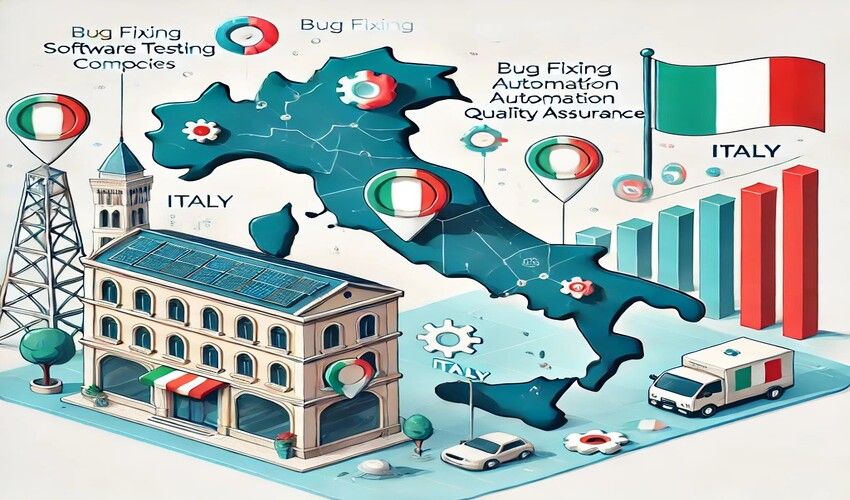Last updated on May 16th, 2024 at 04:47 am
The mobile app market is growing at a significant pace as more and more consumers prefer to use their mobile devices to access information and perform daily tasks. Therefore, startups, small businesses, mid-size companies and established enterprises invest in mobile app development to reach mobile users. It provides businesses with tremendous opportunities to provide users with highly advanced functionalities and upgraded features to maintain interest and fulfill the ever-increasing demands of the customers.
In today’s saturated mobile app market, an app that doesn’t offer unique features and offers a pleasant user experience can’t compete on the market. In order to provide a great user experience app developers need to put customers’ preferences and feedback in the first place. This is why mobile app development companies focus on creating customer-oriented and user-friendly mobile apps that offer an enjoyable user experience.
Mobile app personalization is one of the most important tactics to make your app stand out from the crowd. Today’s audience wants a personalized experience. According to a survey, mobile users expect mobile app personalization from every brand in the near future.
Image source: emarketer
If you have recently launched a mobile app or are currently working on a mobile app development project, here are some mobile app personalization techniques app developers, designers and marketers should consider to create an awesome experience.
Let’s delve into them.
How to Personalize Mobile App Experience?
Collect Customer Data
When it comes to offering a personalized mobile app experience to your customers, it is important to first collect important customer data. For instance, figure out what your target users want, what are their specific needs, preferences, and then segment your audience according to their specific requirements. The type of user data you collect will help your mobile app development and design team to offer a personalized experience that matches your users’ individual needs, interests and wants.
By collecting demographic, contextual and behavioral data, mobile app designers and developers can build a user-friendly app and upgrade its features that your target users will definitely enjoy. When you use your user’s history, level of engagement, location, and other important information, you can implement unique functionality and better UI design flow.
Send Personalized Push Notifications
Believe it or not, push notifications are one of the most effective ways of mobile app personalization that can do wonders. Whether you are running an ecommerce store, retail business, fashion store or SaaS business, you want users to complete the action as soon as possible. Push notifications are undoubtedly an effective marketing strategy that app marketers can use to send personalized offers and take users to exactly where they left off.
According to Responsys, more than 68% of app users enable in-app push notifications for their apps, which clearly shows that today’s users want to interact with brands they love most. Sending them relevant and engaging push notifications will entice them to use your app.
Location-based push notifications can drive more sales. For instance, you can send a notification when customers are near your store and inform them about your recent sale or discount offer. You can send exciting offers via push notifications and persuade app users to take the next step and close the deal.
Create a Personalized Onboarding Experience
Offering a personalized user onboarding clearly tells your audience that your brand understands their needs and problems. By offering an outstanding and memorable onboarding experience, you can turn interested downloaders into active users.
Basically, user onboarding is the process of introducing new users to your app’s most important features and briefly describing what it actually does. A survey suggests that offering a positive onboarding experience can significantly reduce the churn rate and convince them to become your paid users.
When it comes to offering an onboarding experience, it is important to keep it user centric and try to educate users about the features of your product. It should tell users how they will gain value from the product and entice users to complete the action as quickly as possible.
Slack, Netflix, Canva, and Duolingo are the best onboarding examples you should consider for offering a personalized app experience.
Constantly Testing and Optimizing
Mobile app testing and optimization are critically important to ensure each and every feature of your app works best and meets the expectations of real users. Constantly testing and optimizing your app’s features will help you provide the best possible user experience and motivate users to engage and make them return to your app.
Mobile app testing helps app development companies to understand the pain points of mobile users and significantly improve the app-centric metrics. In order to provide a personalized and delightful user experience and make data-driven decisions, you need to test deep within your app.
There are a number of mobile app testing tools available that allow you to consistently optimize your app’s features to simplify your mobile app development roadmap. Using these tools will also make the in-app experience more enjoyable and comfortable for the users.
- TestComplete
- Appium
- Robot Framework
- Xamarin.UITest
- Espresso
- XCUITest
Offer Discounts Based on the User’s Journey
Discount offers and coupons have a better chance of being converted if they are relevant to the user’s purchasing history and interests. It is important to wait for the right moment to display your discount offer. It is advised to present a coupon when the user is actually interested in your product.
For instance, if a user has viewed a t-shirt several times, chances are he/she is interested in the product. You can drive the user to complete the purchase process by showing an exclusive discount or limited time offer next time when they open the app. Keep in mind, targeting the right users at the right moment can help you retain more app users and increase your conversion rate.
Final Thoughts
All in all, mobile app personalization, if done right can drive maximum user engagement and brand loyalty. Mobile apps that provide users with what they want at the right time, provide relevant content based on their location and demographics have higher chances of success than those apps that don’t offer a personalized experience.
It is strongly advised to keep these mobile app personalization techniques in mind while working on your next mobile app development project or simply hire a team of professional app developers to discuss how you can add personalized features to your already developed business app.
Irfan Ak is an experienced digital & content marketing strategist at Branex Mobility. He is a regular contributor on various websites. He has worked with several brands and created value for them.

















Leave a Reply